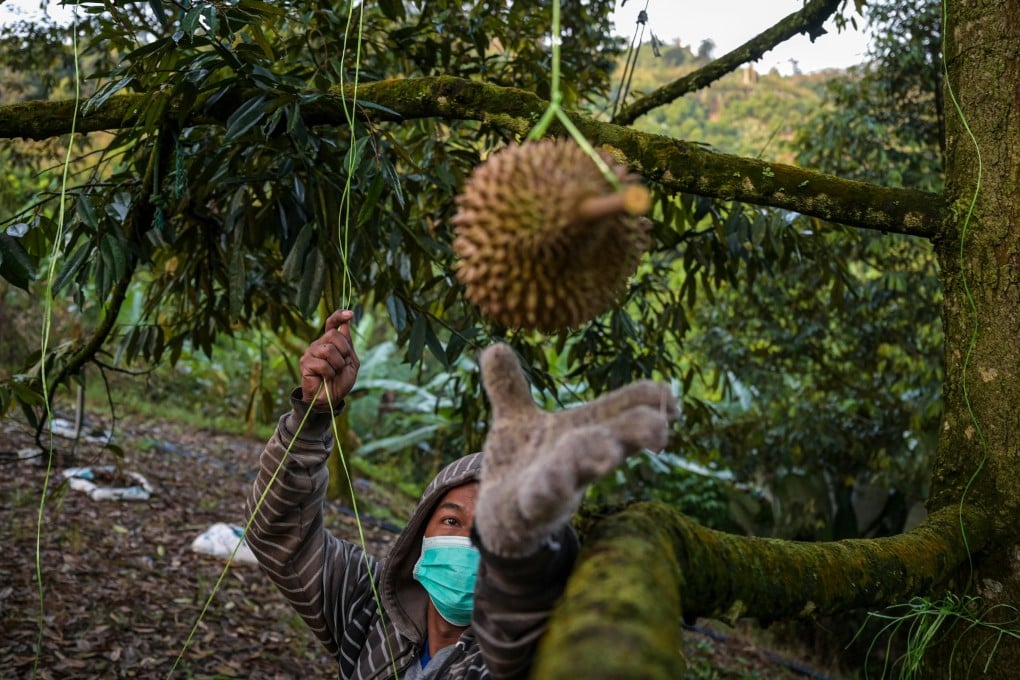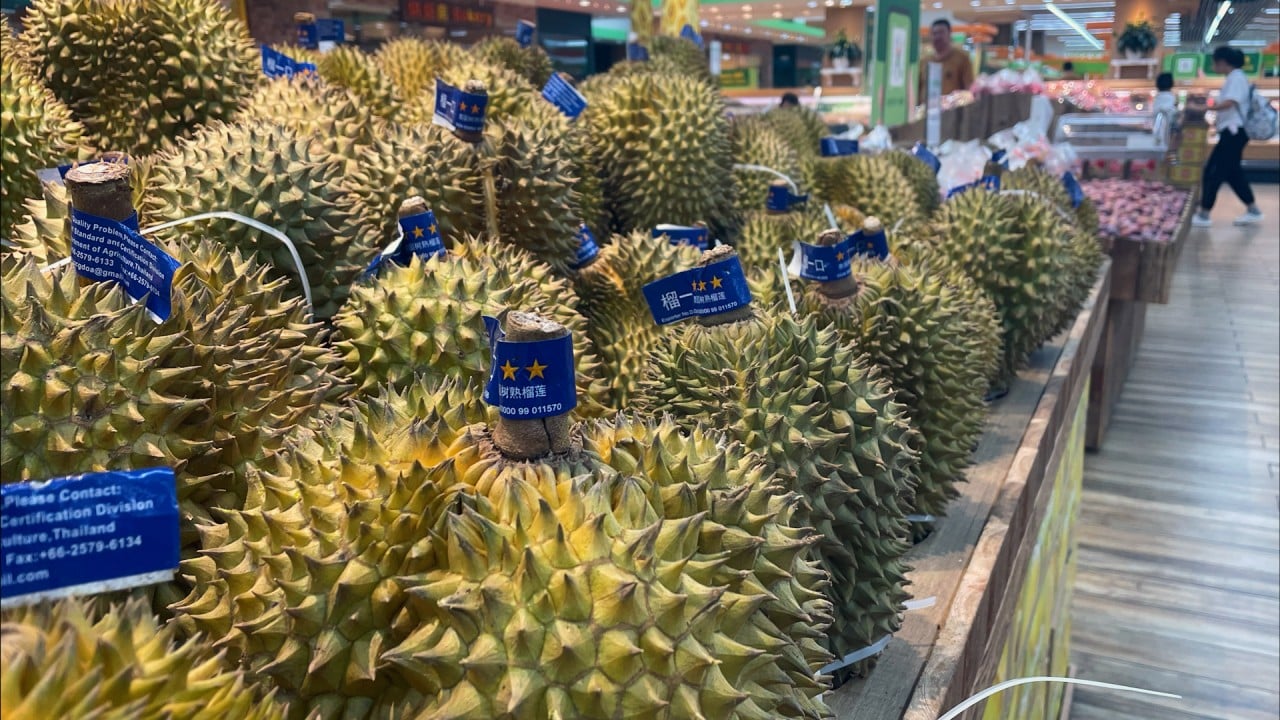Malaysia renews trademark for luxury durians sold in China, as some Thai fruits suspended
The price of a single Musang King durian from Malaysia can surpass US$80 in China, and new protections could make them even more costly

China’s durian consumers, the world’s biggest fans of the spiky pungent fruit, are expected to find not only consistently stable quality but also higher prices with Malaysia extending the intellectual property status of its popular Musang King variety – a move that comes as Chinese authorities have suspended some imports from Thailand.
The Intellectual Property Corporation administrative body in Kuala Lumpur renewed a protection certificate until March 2034, according to the government-owned Bernama news agency.
In its September 19 report, Bernama quoted the country’s minister for agriculture and food security, Datuk Seri Mohamad Sabu, as saying that the intellectual property designation means Musang King “belongs to Malaysia” and cannot be claimed by durian sellers from other countries.
In China, where consumers often eat Thai and Vietnamese durians because of the much higher import volumes, respect for Malaysia’s intellectual property status should help sustain prices that can be four to five times higher than other types of durian in a competitive market, said Peng Peng, executive chairman of the Guangdong Society of Reform.
“After price wars, in terms of quality and branding, the trademark might be a relatively good strategy,” said Peng, who is also helping a Shenzhen importer sell Malaysian durians in Guangzhou.
Chinese consumers buying trademarked Musang King durians will feel more confident that they are getting the real deal rather than a mislabelled fruit, said Lim Chin Khee, an adviser with the Durian Academy, an institution that trains Malaysian growers.

